The AnitaB.org Grace Hopper Celebration, an event honoring Grace Hopper’s legacy by inspiring future generations of women to pursue careers in technology, takes place this week, as it has every year since 1994. Amazon is a Diamond sponsor of this year’s event.
Unlike previous years, though, this year’s celebration, which AnitaB.org produces in partnership with the Association for Computing Machinery (ACM), will be held virtually given restrictions related to COVID-19. What hasn’t changed is the vision of AnitaB.org: a future “where the people who imagine and build technology mirror the people and societies for whom they build it.”
The moment you’ve been waiting for is finally here! #vGHC starts today with 100s of speakers and 200+ sessions, expert-led workshops, mentoring circles, networking opportunities and MORE!
— AnitaB.org (@AnitaB_org) September 29, 2020
Can't wait to see you at the world’s largest gathering of #womenintech #TogetherWeBuild pic.twitter.com/pNgGQMgQhZ
Based on the latest statistics from the National Center for Women & Information Technology, that future is still on the horizon. While 57 percent of US professional jobs were held by women in 2019, just 26% of professional computing jobs were occupied by women. Among the 26% of women occupying professional computing jobs, 7% were Asian women, 3% Black women, and 2% Hispanic women.
Elizabeth Nieto, Amazon’s head of global diversity and inclusion, says the company’s vision is to create a culture where the best builders, including women from all backgrounds, want to work and stay at Amazon “because they are drawn to our mission, our culture, and our leaders. We are focused on being globally inclusive and creating a culture at Amazon where everyone can reach their full potential.”
At last year’s event, Brenda Darden Wilkerson, president and CEO of AnitaB.org, told nearly 25,000 attendees, “I want our daughters to say, ‘I heard back in the day there was this problem that there weren’t enough women in tech. What was that like?’”
In advance of this week's conference, Amazon Science asked some of the company’s women scientists when they think the industry will reach that goal, what it will take to get there, and who or what most inspired them to pursue their science careers. Below are their responses.
Kristine Brown is a principal economist within Amazon’s human resources organization. She obtained her PhD in economics from the University of California, Berkeley.
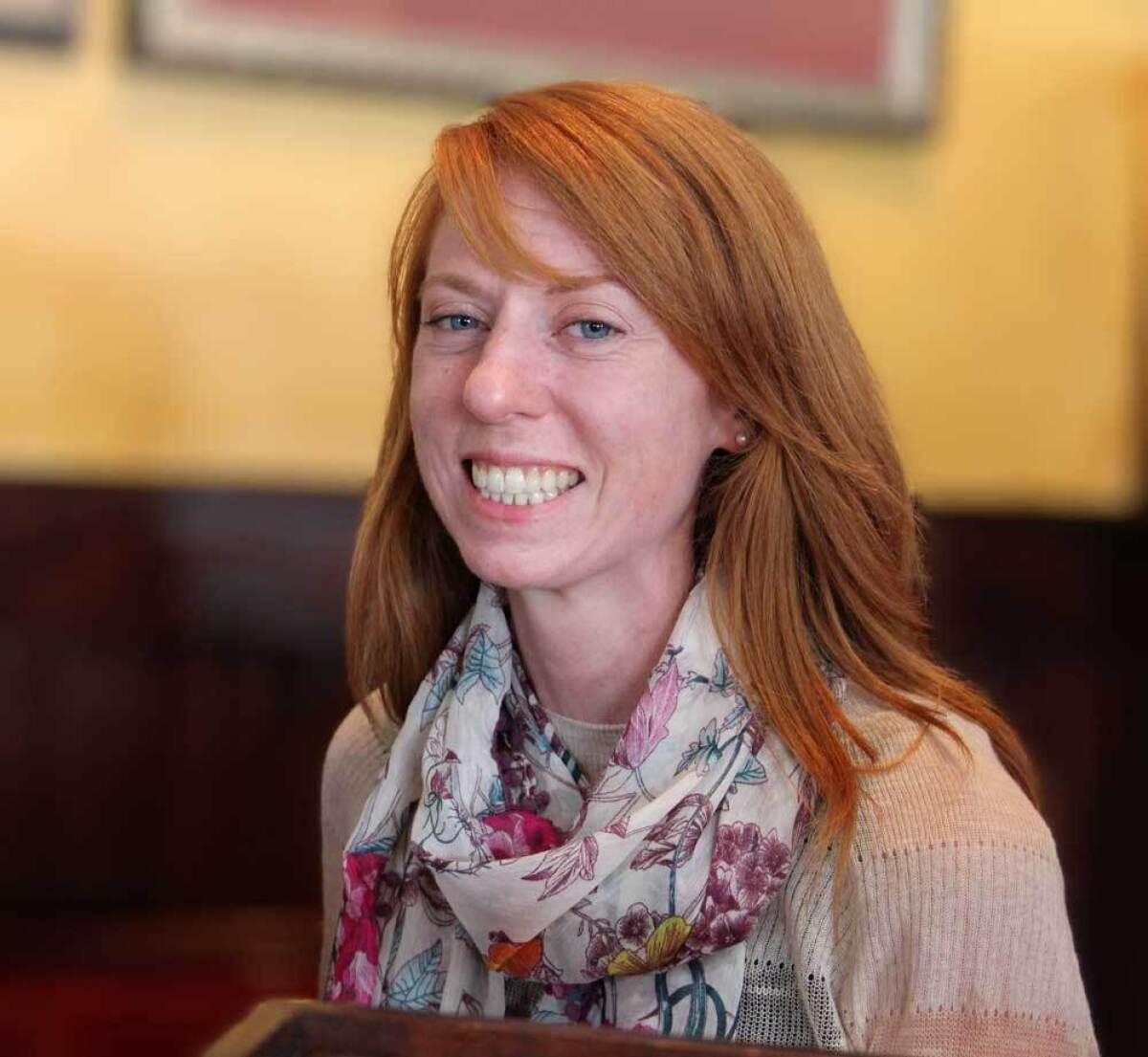
Q. When do you think we'll reach that day that Brenda Wilkerson talked about last year?
At Amazon, I learned the importance of continuous inspection to identify opportunities for improvement, and to adapt to a shifting environment. I think the same applies here; the task of deliberately creating opportunities for others, and removing barriers to shape a more equitable and inclusive workplace will evolve over time, but it doesn’t have an end date.
Q. What will it take to get there?
The demand for science and tech talent is increasing in the traditional technology sector and in other industries that are leveraging new technologies and data to provide better services and products. The door is wide open, but you can’t walk in if you don’t know it exists, or how to get there. For me, early exposure and encouragement to explore science and math were critical. I discovered a passion for physics and that interest pushed me to develop my math and science skills. I was lucky to have this opportunity. Casting a wider net to provide early, low stakes opportunities to engage in science and tech activities, develop STEM skills, and learn about the diversity of work in this space, will help demystify the technology industry. It will also allow kids and young adults to learn whether it matches their interests and whether they have a knack for it.
Q. Who or what inspired you most to pursue your STEM career?
My fascination with the natural world was fueled by observing wildlife, peering through an observatory telescope at distant planets, and nature magazines with beautiful photos. The mind-bending questions of space and time were especially irresistible; I wanted the answers to the universe, and physics and math were the key to finding them. Later, as I became interested in understanding human behavior (which I’d argue is no less mysterious) and how government policies could improve lives, I found economics came with a familiar toolkit of mathematical modeling and scientific testing to answer these questions. I saw a career in economics as an opportunity to leverage my strengths to drive positive change.
Laura De Lorenzo is a quantum computing research scientist within the Amazon Web Services organization. She earned her PhD in applied physics from the California Institute of Technology (CalTech).
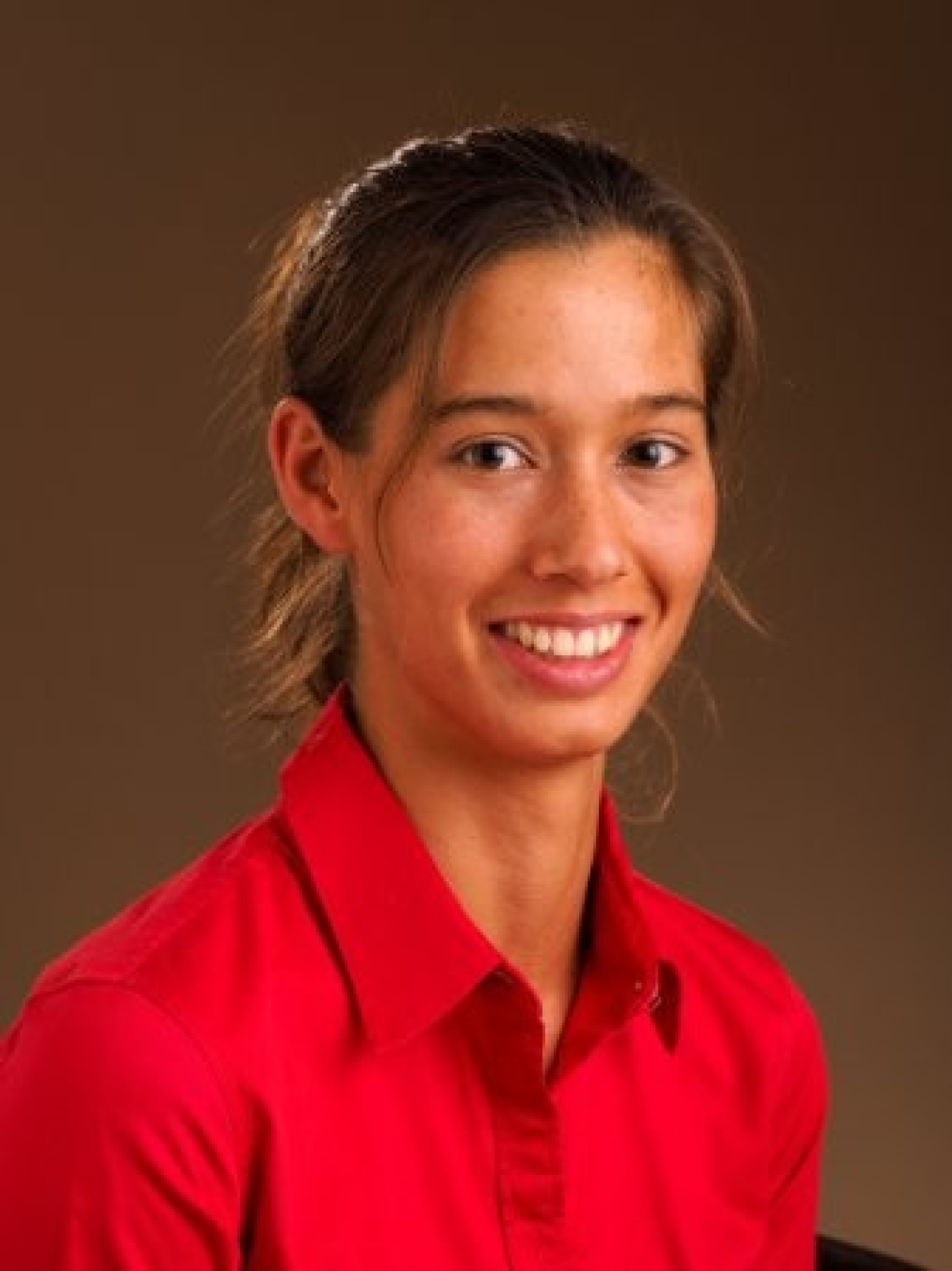
Q. When do you think we'll reach that day that Brenda Wilkerson talked about last year?
To be honest, I'm so uncertain as to be unwilling to hazard a guess, but I do think it is a long way off. In some STEM fields, such as medicine, the gender gap has nearly, or completely, closed within the past 50 years. In other fields, the percentage of women (measured by employment or educational degree) remains far below 50% and doesn't appear to be changing significantly year over year. The amount of progress in some fields is encouraging, but it's difficult to understand why fields like physics and computer science lag behind.
Q. What will it take to get there?
This issue is clearly challenging and multi-faceted, so I cannot offer a single simple solution. However, I think one important aspect is a focus on young women, in the middle school to high school age group. For example, women are already underrepresented in the high school AP physics examinations. By the time students reach the undergraduate level, only about 20% of physics majors are female. I think it is essential to understand why young women make these choices. Is it a lack of role models, or self-doubt about their ability to perform well in science, or peer pressure, or something else entirely? In the meantime, I think it is important to offer encouragement and support to young students because once women drop out of the STEM fields, it is more difficult for them to return at a later age.
Q. Who or what inspired you most to pursue your STEM career?
From a young age, my parents were always supportive of my interests in science and math, and of my career in general. My mother went to medical school in the late ‘70s, when women represented only about 20% of medical students in the US. I always saw her as strong, hard-working, and independent, and she was a great example for me to follow. Both of my parents had high expectations for me and would never allow me to perform at less than my best. I definitely owe the largest debt of gratitude to them. However, programs such as Science Olympiad and the Pennsylvania Governor's School for Science (a five-week program for rising high school seniors), also helped me by introducing me to a peer group with similar interests, and to a larger group of role models and mentors who could help me navigate the next step.
Yang Liu is a principal scientist within the Alexa AI organization. She earned her PhD in electrical and computer engineering from Purdue University.

Q. When do you think we'll reach that day that Brenda Wilkerson talked about last year?
Maybe in another generation. My daughter is in first grade now. I’m hopeful we can reach that day when she finishes high school, and is choosing a college major or planning a career in STEM or the technology industry.
Q. What will it take to get there?
It will require effort from everyone in society, including educators, students, parents, and policy makers. Starting from kindergarten through high school, young girls and women need support and encouragement from parents and teachers to realize their potential and get excited by STEM careers; educators need to nurture girls’ interest in STEM and create an environment to help them do well in these subjects; and policy makers need to provide appropriate and adequate resources for teachers and students. As Hillary Clinton has written and said, it will take a village for society to address existing biases and prejudices. But with everyone’s effort, I’m confident we can get there by the time my daughter is entering the workforce.
Q. Who or what most inspired you to pursue your STEM career?
Mostly just people around me — my family, teachers from elementary schools all the way up to universities, and an overall supportive environment, including friends and peers. I grew up in China. My mom was a math teacher, and I did well in math starting in elementary school. All I got from everyone around me was support, respect, and encouragement to continue to excel in this subject. I never encountered an attitude like “girls are not good at math (or other science subjects) or don’t need to do well in math”. I made many friends (girls and boys) in schools, and was never left out because I did better than others in science. Reflecting on this, there’s no doubt I benefited from that supportive environment, leading to my future career in STEM. I don’t know for sure if there is a difference between China and US; I don’t have enough sample to draw a conclusion. I’m not even sure if there’s been a generational change within China. What I can say is that I would encourage girls and young women to pursue STEM careers. The subjects themselves are fascinating. Right now I’m working within the Alexa organization on making computers and other devices “intelligent” by recognizing speech and understanding human language. The work is challenging, interesting, and it’s great to see how Alexa can have a positive impact on the lives of our customers.
Hannah Marlowe is a senior data scientist within the AWS Worldwide Public Sector Professional Services Data and Machine Learning team. She earned her PhD in physics from the University of Iowa, specializing in the study of astronomical X-ray sources and space-borne instrumentation development.
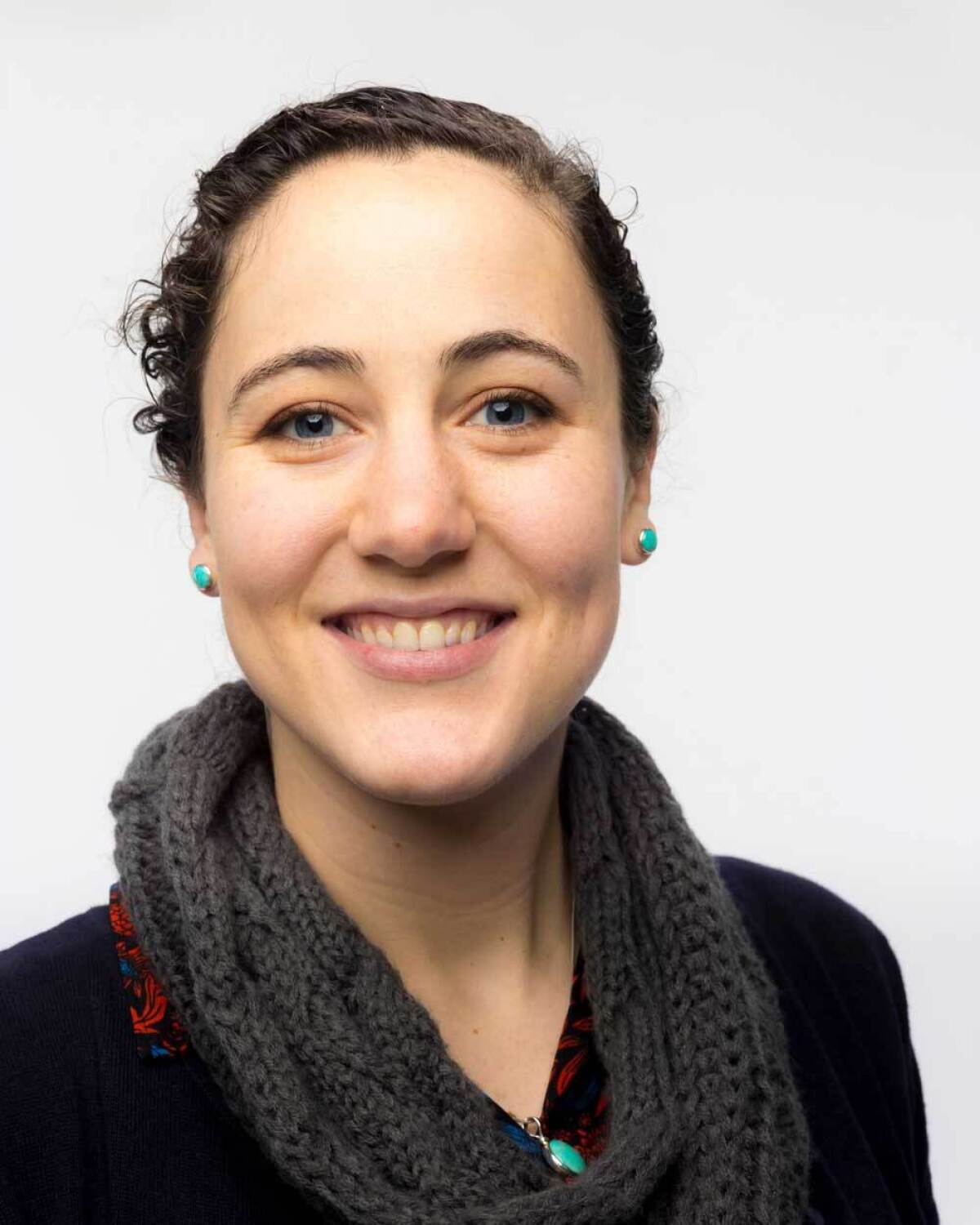
Q. When do you think we'll reach that day that Brenda Wilkerson talked about last year?
The university building where I completed my PhD was an interesting time-capsule to observe some of the progress of women in physics and astronomy. The eight-level physics building, built in the ‘60s, originally featured only men’s restrooms apart from one. The lone women’s restroom was located across the hall from the administration office and included an attached kitchen (still there today), presumably so that secretaries working in the office could prepare meals during the work day. In years since, they have thankfully adjusted the restroom situation, but the basement where my team’s lab was located still only had a men’s room and it was always an interesting reminder of that past.
Today, the thought of designing a building with facilities only for men (much less a public university building) seems completely ridiculous, but it wasn’t so long ago that it apparently made practical sense. We are standing on the shoulders of giants like Ruth Bader Ginsburg and other advocates of gender equality who paved the way for the participation of women in traditionally male-dominated fields and shifted public perception of what women can and should do. It is my hope that we continue to build on the work they championed, but it will take a concerted effort. I don’t have a good answer for when I think we will get to the point that gender disparity in STEM fields is a distant memory. However, I have seen positive changes and witnessed shifts over my own career (not limited to restroom design choices) that make me optimistic that we can get there eventually.
Q. What will it take to get there?
I don’t believe there is any one right answer, but one of the most important things is making it clear to young girls and women that they belong and add value in STEM. I think people tend to gravitate to careers and roles that they have exposure to, and where they see role models that look like themselves. The other piece is not just encouraging girls and women to explore STEM, but expecting it and treating it like a normal career path versus an exceptional one. That is not to say we should be pushing girls to pursue something they aren’t interested in, but I hope that we get to a point where girls pursuing STEM seems completely boring and commonplace. That gets easier as more women enter STEM fields, and I think there is probably a tipping point where women and girls just naturally begin to gravitate in larger numbers to these fields. As a practical matter, we should also be equipping girls with all of the skills and tools that will make them successful in these fields from a young age. Anyone who isn’t exposed to math and science early is going to have to play catch-up later on, and may question their own abilities when they compare themselves to peers who have been in advanced math and science tracks throughout grade school.
Q. Who or what most inspired you to pursue your STEM career?
I feel extremely fortunate that I have mainly been able to follow my interests and what I found to be fun and personally challenging throughout school and my career so far. I also had many great influences and mentors in my life that helped me along my path. From an early age my father used to point out constellations in the sky and took my sister and me to observe comets and space shuttle launches. Once I got to high school, I had a wonderful retired NASA engineer as a physics teacher who introduced me to physics and to Carl Sagan and helped us start the first astronomy club at our school. For my undergraduate education, I chose a small women’s liberal arts college, Agnes Scott College, that had its own observatory and offered an astrophysics degree. At Agnes, I had excellent professors and the unique experience of having all of my STEM peers be women. I think that experience especially helped inoculate me for the future where I’ve more often found myself the only women in large lab groups, collaborations, and professional teams.
The last thing I would like to mention here, because I think it is really important and something I have often struggled with, is the issue of self-doubt. Self-doubt and imposter syndrome are definitely not limited to women in STEM fields, but I think being the only one around who looks like you can contribute to those feelings, and can push people away who have wonderful things to add to these fields. I have so often questioned myself and my worthiness, intelligence, and value (did I really earn that award/fellowship/job offer or was I selected just because I am a women/was in the right place at the right time/completely by mistake?). It was really important for me to know that I was not alone in doubting myself and my capabilities and I am grateful to colleagues and mentors, men and women alike, who shared their own experiences with self-doubt and imposter syndrome along the way. I’ll always remember my wonderful, brilliant, and inspiring undergraduate professor telling me about her own struggles in graduate school, and that one of the reasons she became a professor was to show us that “if she could do it, any of us could.”
Nina Mishra is a principal scientist Amazon’s Health and Wellness organization. She earned her PhD in computer science from the University of Illinois at Urbana-Champaign.

Q. When do you think we’ll reach that day that Brenda Wilkerson talked about last year?
While computer science has had a gender gap since its inception, I was convinced early on that a trifling matter like gender difference would self-correct. I was wrong. According to a 2019 Taulbee survey, 80% of PhDs are awarded to men and 20% to women. Back in 2001, the split was 78%/22% -- essentially unchanged after 18 years. The problem is not likely to improve in the next five years since the 80/20 gap persists in 2019 at the computer science bachelor’s degree level. Beyond gender gap, there is a gaping wide race gap. In 2019, less than 1% of PhDs were awarded to Black or African-American students; in 2001 this number was 1.3% -- again, essentially the same. This gap persists early in the education pipeline. For example, while Atlanta’s population is more than 50% black, only 3 Black students are enrolled in advanced placement computer science courses in local public high schools -- that is 3 out of 528,000! Narrowing this gap is critical for the technology industry. Companies do not want the lack of diversity in their workforce to perpetuate into their products. When will we reach that day? When we change the computer-science culture to welcome and embrace differences.
My hope, adapting the words of others, is that the arc of social justice is long, but bends towards equality.
Q. What will it take to get there?
We cannot reach parity until we overturn the presumption that women hold different roles than men. Until we eliminate the idea that there are ‘girls’ disciplines’ and ‘boys’ disciplines’, and slights such as asking a woman in a meeting if she’s a secretary, or if she can get water for the meeting, it will be difficult to make progress. Derogatory comments like these contribute to the ‘million cuts’ that women experience and can ultimately lead people to pursue careers where they are more wanted. I’m surprised that people are still hung up on these role associations, but the concern is real and people like Ruth Bader Ginsberg fought their entire career to overturn them. My hope, adapting the words of others, is that the arc of social justice is long, but bends towards equality.
Beyond reaching parity, underrepresented groups need to be seen and more prominently heard. All people have amazing ideas, but I have repeatedly seen ideas from underrepresented groups diminished and even discarded. When such ideas later resurface with the ownership transferred to someone in an overrepresented group, the process is demoralizing and influences people to find alternate careers. These injustices need to be reported and escalated to higher levels. The problem can only be fixed if we have an active dialogue starting from a young age.
Accessibility of resources is a consideration in some parts of the country. There are still households where students do not have a computer and others where a single computer is shared among many family members. There are households that do not have internet access. And, there are parts of the country where computer science classes and teachers aren’t available to students. People cannot choose a computer science career if they are missing these simple, starter ingredients.
Outreach is another area where we can do more. Students may wonder, `What will I do if I have a career in STEM?’. Everyone knows what a medical degree or a law degree leads to career-wise, but what does a computer science degree lead to? The common misperception is of macho geeks cranking out tons of code. For me, it is about finding ways to use data collected about some people to help millions more. It is about the amazing predictions that machine learning can make. The way that smartwatches can detect heart arrhythmias and search engines connect people to information is rooted in data and machine learning. Writing code is a means to that end. Novel and crazy ideas are what push the field forward. A more concerted effort is needed to communicate this to young students.
Q. Who or what most inspired you to pursue your STEM career?
My mother played a huge role early in life. She has a gift for explaining mathematical concepts. She taught math at a community college and also a prison. Later on, my high school math teacher played a large role. She forced students to walk to the board and write/explain their solutions. It was an early peek into the clarity one achieves by teaching their solution to others. Both taught me the precision and beauty of math. Both insisted on exacting standards for the highest quality of work. My father taught me to be bold. He has a PhD in inorganic chemistry and emphasized scientific innovation. To this day, he shares articles with the latest and greatest scientific findings, always pushing me to aim higher.
Candace Thille is director of learning science within Amazon’s Global Learning and Development organization. She obtained her master’s degree in computer science from Carnegie Mellon University and earned her PhD in education from the University of Pennsylvania.
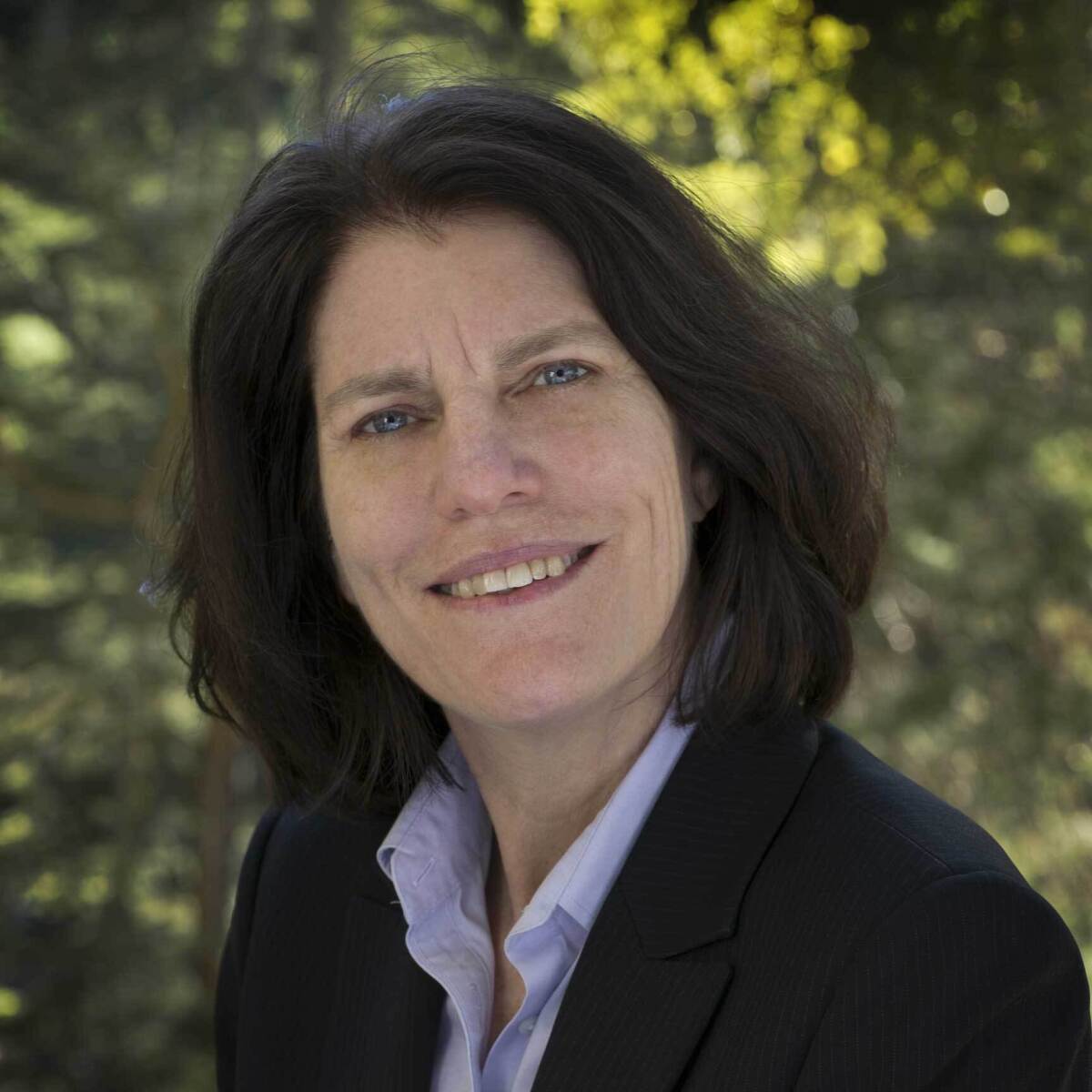
Q. When do you think we'll reach that day that Brenda Wilkerson talked about last year?
I am going to change the question to respond to what I wish Brenda Darden Wilkerson had said: “I want our sons to say ‘I heard back in the day there was this problem that there weren’t enough women in tech. What was that like?” I do not mean to imply that the quote needs to be changed because the problem is only important if it is acknowledged by our sons, but rather that the problem will only be corrected when the problem, and the responsibility for correcting it, is owned by our sons too, not just our daughters. When will we reach that day? When gender is no longer seen as a feature of an individual that is relevant for encouraging, allocating, or selecting roles and responsibilities.
Q. What will it take to get there?
First, an acknowledgement that the current systems and structures in STEM fields are grounded in the idea that gender and race are features of an individual that are relevant for encouraging, allocating, or selecting roles and responsibilities. Second, a commitment to ongoing inspection of those systems and structures for biases in order to change them. People would sometimes ask Ruth Bader Ginsberg “When will there be enough women on the court” and she would reply, “When there are nine”. She would say then that “People are shocked, but there’d been nine men, and nobody’s ever raised a question about that”.
Q. Who or what most inspired you to pursue your STEM career?
I have always been fascinated with how things work, both for the joy of understanding and to figure out how to make things work better. I have been awed by the discoveries that come from good research, and from the positive impact of using the results from research to make the world better. Both as an academic researcher and as a research scientist at Amazon, I situate my work in Pasteur's quadrant and work on projects that seek fundamental understanding of scientific problems, while also having immediate use for society.
Chao Wang is a senior applied science manager within the Alexa organization. She earned her PhD in electrical engineering and computer science from the Massachusetts Institute of Technology (MIT).
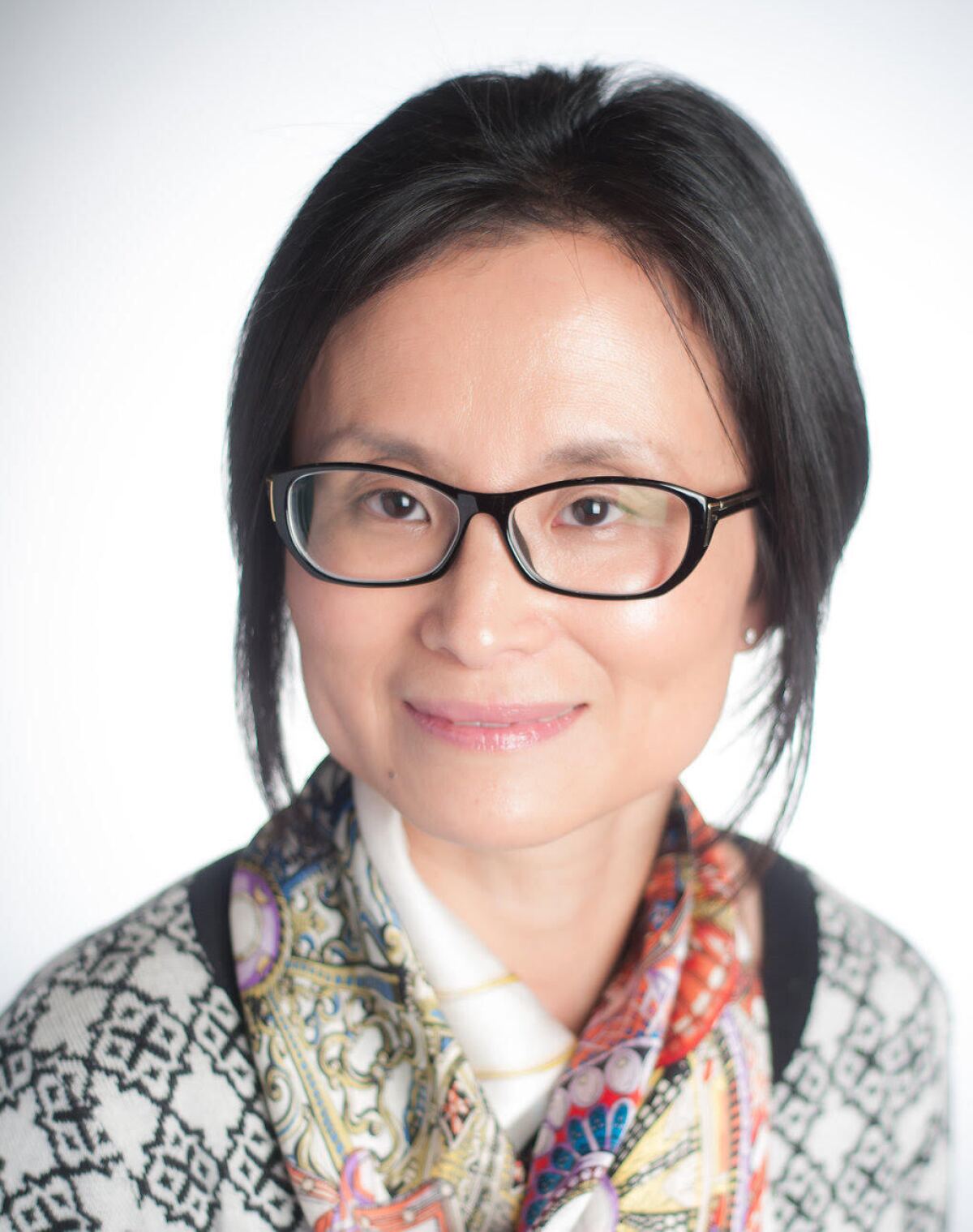
Q. When do you think we'll reach that day that Brenda Wilkerson talked about last year?
I’m reminded of the Bill Gates quote, “We always overestimate the change that will occur in the next two years, and underestimate the change that will occur in the next ten. Don’t let yourself be lulled into inaction.” I’d like to think we could reach that state within the next 10 years, but it will probably take another generation of change. So I think closer to 2050.
Q. What will it take to get there?
I’ll share a very different perspective. I grew up in China and the education system back then made everyone decide their major in sophomore year of high school. That system channeled students to different college entrance exams depending on the choice (so your career paths are largely determined very early on). It was a 5:2 split ratio for STEM and non-STEM (probably matching the college admission ratio), and naturally only students who were really interested in a non-STEM career path self-selected into that track. The majority chose STEM. At the time, I did notice that more female students chose the non-STEM track, but plenty of us ended up in the STEM track, too (strength in numbers). I have observed that in the US, if you are ambivalent about STEM, then the gender stereotype works against young women pursuing STEM careers. I contrast that with the early days of computing in the US, when computer programmer was considered a female job, and you had a lot of female programmers in an otherwise male dominant technology industry and computing pioneers like Dr. Grace Hopper. It all changed (for the worse) within a generation, and we can change it back with the right societal mental shift.
Q. Who or what most inspired you to pursue your STEM career?
Growing up in China I never felt that STEM was somehow an unusual choice for a young woman. Math and physics were always my favorite subjects, and no one ever discouraged me from pursuing those interests. I enjoyed the problem solving of math and physics much more than courses requiring writing or memorization. I opted for the STEM track in high school and was admitted into a top engineering school in China for my undergraduate studies. My career path was more or less decided from that point in time.


















